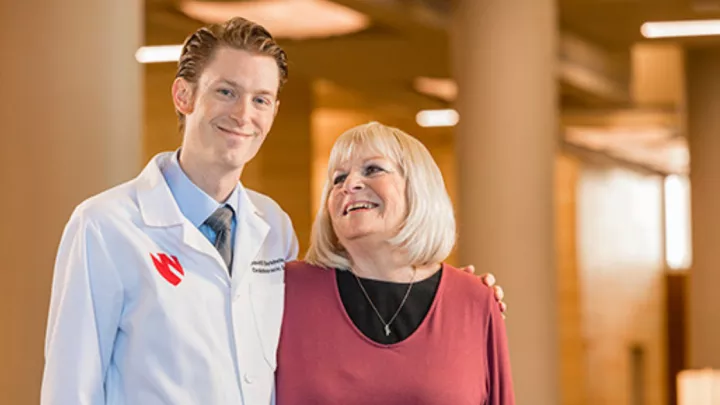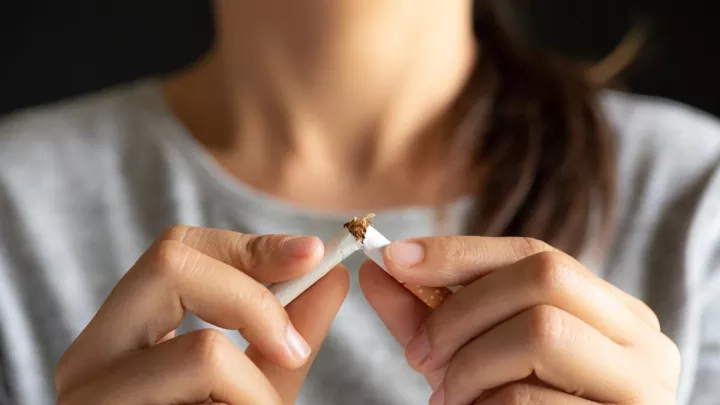It's never too late to quit smoking

Tobacco use is the leading cause of preventable death and disease in the United States, and is responsible for 90% of lung cancer diagnoses. It is never too late to quit smoking. Research shows that even people who have smoked for decades will see immediate improvements in how they feel and in their health after quitting.
Changes within 24 hours of quitting include:
- Heart rate returns to normal.
- Blood level of carbon monoxide declines, increasing the blood’s ability to carry oxygen.
- Risk of heart attack decreases.
Over time, your lung function will improve. significantly. You will likely feel this by less coughing and less shortness of breath. Over time your heart disease and stroke risk also decreases. You will likely feel healthier, save money and protect others from exposure to secondhand smoke.
We understand that quitting tobacco will be one of the hardest things you ever do. When you are ready to stop or reduce your smoking or tobacco use, our smoking cessation experts are here to help you reach your goal. Call us at 800.922.0000 or 402.559.4389 and ask for an appointment with the Smoking Cessation Program.
What to expect
The Nebraska Medicine Smoking Cessation Program is open to those who smoke cigarettes, cigars, chew tobacco, or vape nicotine substances. We address the psychological and physical addiction to smoking, providing medicine recommendations when appropriate with one-on-one counseling and regular follow-up visits in person or via telehealth or telephone. This specialized approach has proven to double, and sometimes triple, the rates at which people quit smoking.
Our smoking cessation experts will teach you how to cope with cravings and avoid things that trigger your desire to light a cigarette, chew tobacco, or vape nicotine. In addition to providing mental techniques, Nebraska Medicine providers will prescribe FDA-approved medications to ease cravings and other withdrawal symptoms when appropriate.
We offer low-dose CT screening for people with a higher risk of developing lung cancer. This includes current and former smokers. Learn more about our Lung Cancer Screening Program.







